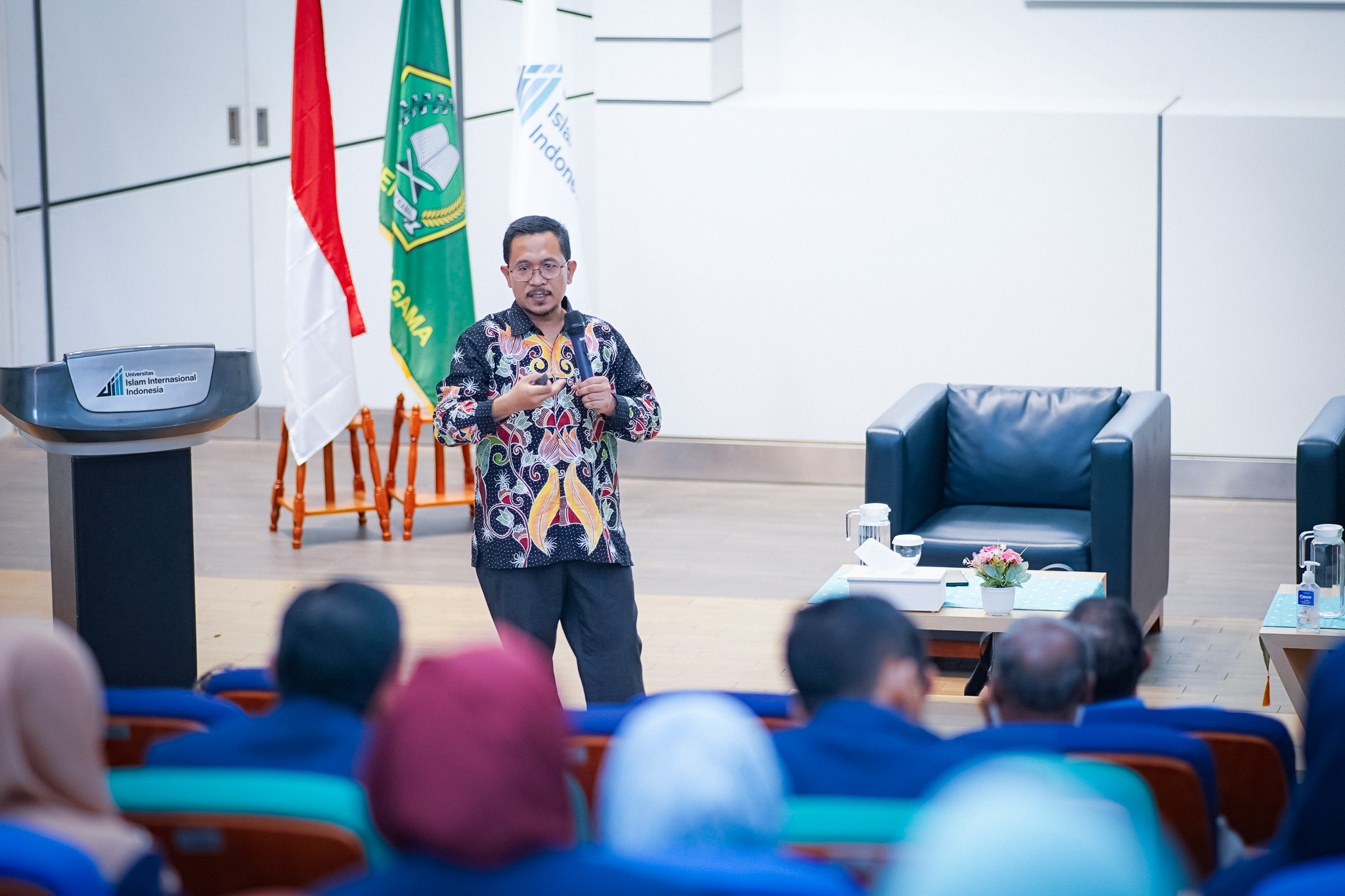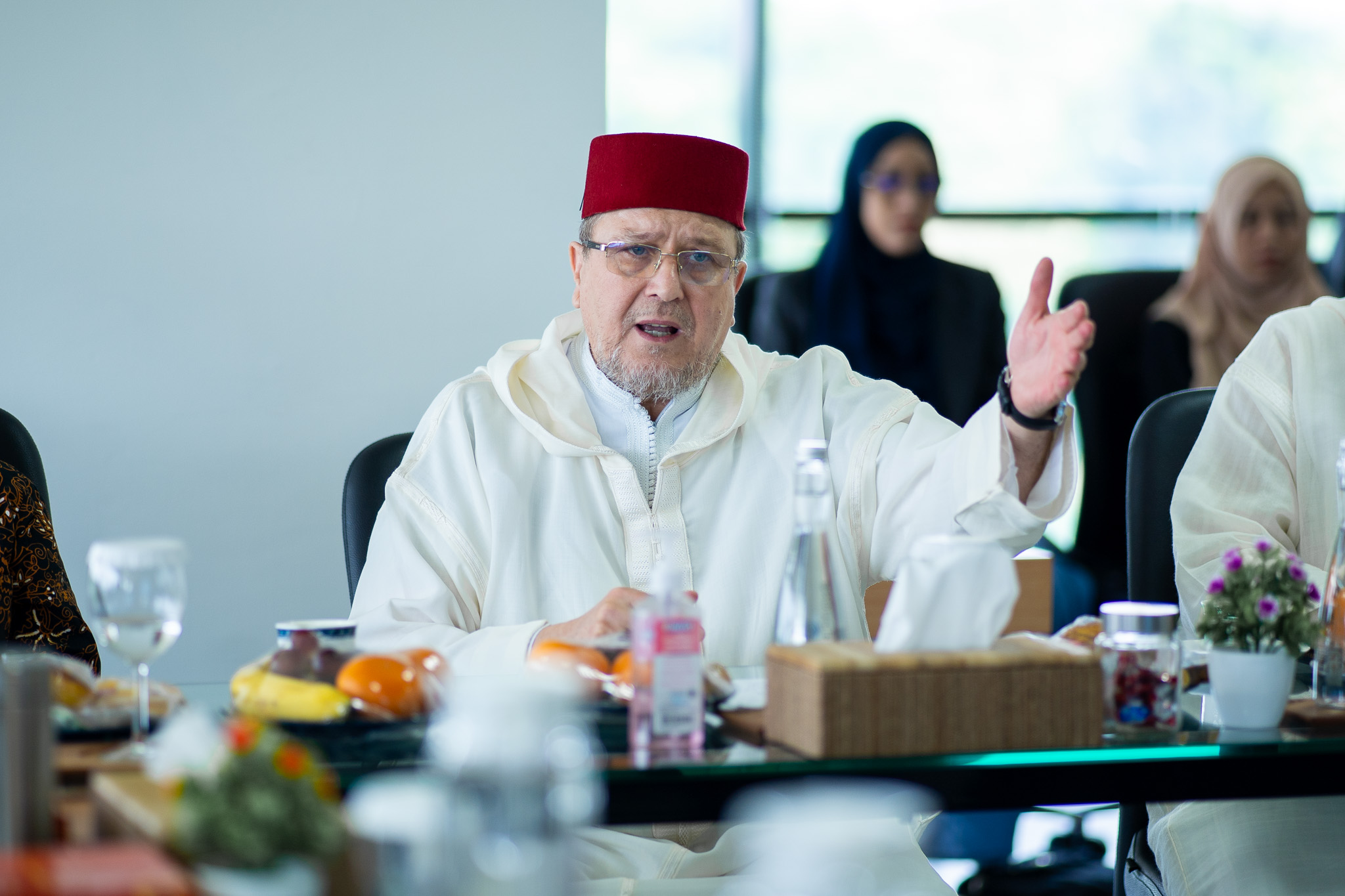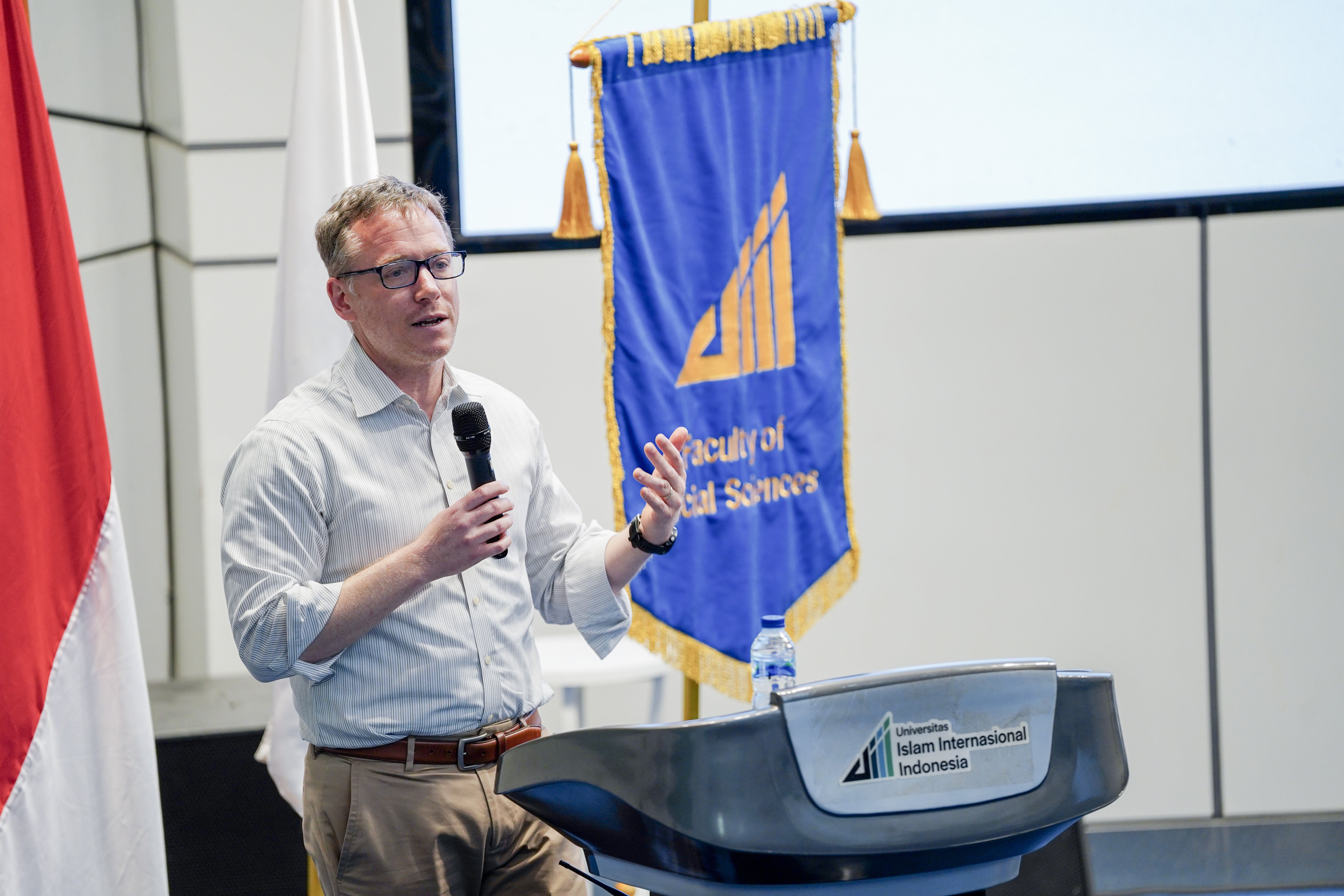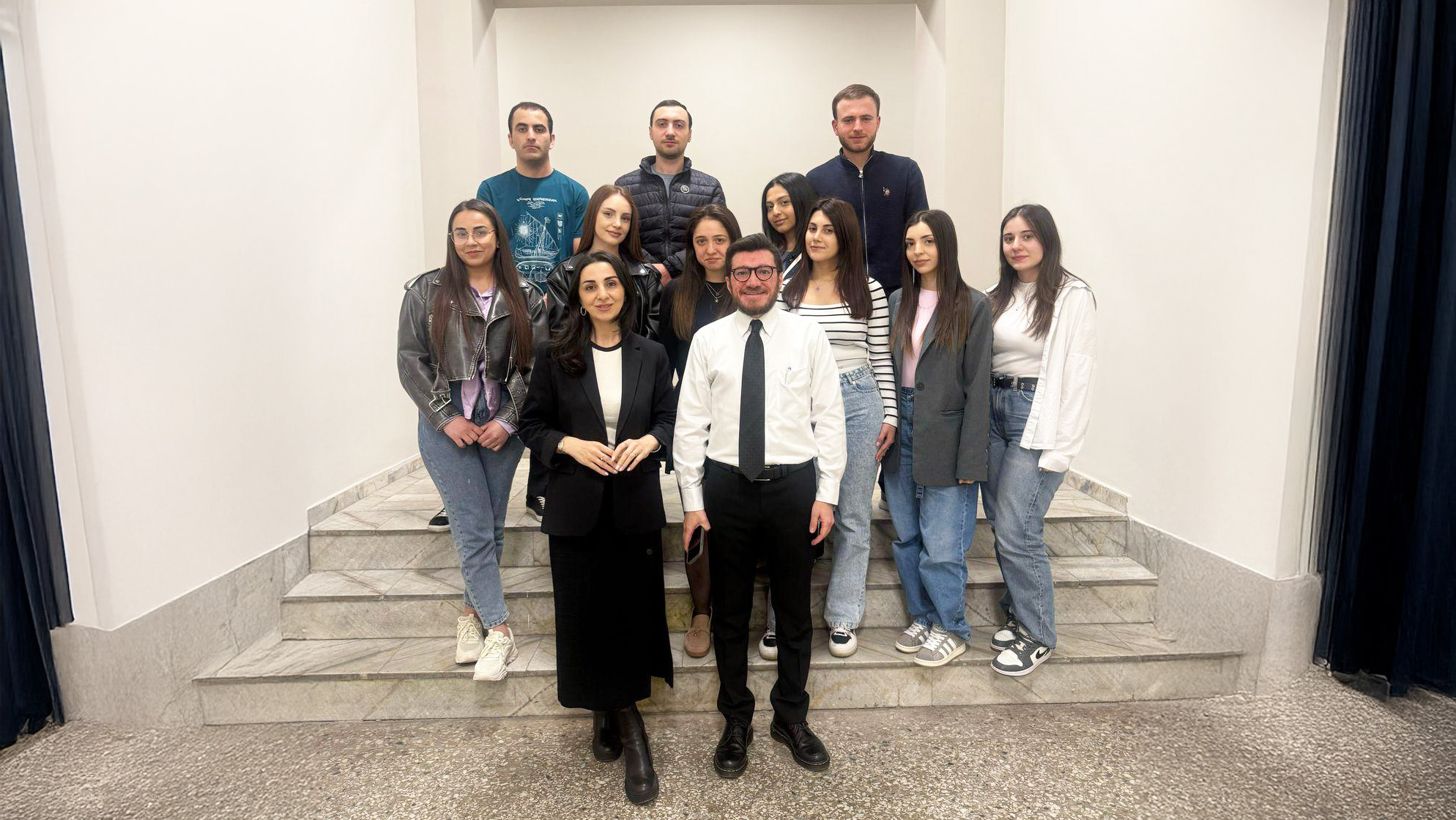Dr. Abdushomad Delivers a Lecture on Learning Organizations at UIII
December 10, 2023Contributor: Maroof Ahmed | Editor: Ari Stoltze

DEPOK, UIII.AC.ID - The Faculty of Education (FoE) at Universitas Islam Internasional Indonesia (UIII) hosted a LUNCHTALK with Dr. Muhammad Adib Abdushomad, Head of the Sub-directorate of Islamic Religious Education at the Senior High School Level within the Directorate of Islamic Education, discussing the relevance of learning organizations and their evaluation at the Ministry of Religious Affairs of Indonesia (MORA).
Dr. Abdushomad emphasized the importance of transforming educational organizations into learning organizations. He highlighted the necessity of continual expansion of capacity, nurturing new patterns of thinking, setting collective aspirations, and fostering an environment of continuous learning.
Dr. Abdushomad advocated for embracing the five disciplines proposed by Senge: system thinking, personal mastery, mental models, shared vision, and team learning. These elements, he argued, are crucial for the personal growth of educators and students alike, reflecting a deep-seated desire for learning and improvement within the organization.
Furthermore, Dr. Abdushomad underscored the influence of mental models and attitudes within an organization. He noted that these models significantly impact the working dynamics and the overall efficacy of an educational system. He also stressed the importance of a shared vision rooted in commitment and values, arguing that this is essential for the successful operation of an organization like MORA.
The concept of team learning, as presented by Dr. Abdushomad, involves aligning and developing the capacity of a team to achieve its collective goals. This builds on the development of a shared vision and personal mastery, bringing together talented individuals for collective success. Additionally, Dr. Abdushomad touched upon the importance of system thinking, emphasizing the need to understand the interrelationships among key system components while acknowledging the human factor as a critical asset.
In addition, Dr. Abdushomad delved into the current challenges and strategies in knowledge management at MORA. He critiqued the tendency to view knowledge as a product rather than a process, calling for a shift towards a process strategy. This strategy, he suggested, should involve facilitating conversation and exchange of tacit knowledge, hiring qualified personnel capable of tolerating ambiguity and sharing knowledge, and encouraging one-on-one mentoring.
At the end of his lecture, Dr. Abdushomad called for a change in strategy from a product-centric approach to one focused on processes. He urged the need for spaces that enable more effective and efficient knowledge sharing. He also highlighted the need for leaders for change at MORA who can adapt to new ways of working and respond with flexibility and learning-oriented leadership.
Dr. Muhammad Adib Abdushomad’s insights offer a compelling vision for the future of Islamic education. His emphasis on learning organizations, personal mastery, and collective learning aligns with the global shift towards more dynamic, responsive, and collaborative educational models. His call for change and adaptive leadership resonates with the current needs of educational institutions worldwide, particularly in the context of Islamic education, where traditional methods are being reevaluated in light of contemporary challenges and opportunities.
- UIII Extends Application Deadline for 2025 International Admissions
- What Does Eid al-Fitr Mean for the UIII Academic Community?
- UIII PhD Scholar Ararat Kostanian Delivers Lecture at Armenia's Yerevan State University
- Swedish Ambassador to Indonesia Applauds UIII’s Vision, Explores Future Collaboration
- Depok Mayor Supports UIII as the Green Lung of Depok and Beyond
- Depok Mayor Pledges to Build Performance Hall at UIII
- New Parking Facility Launched, Part of UIII-Sentra Medika Hospital Partnership
- Yogyakarta’s UII Won 1st FisFastFest’s Clash of Campuses
- Vice Minister of Religious Affairs Praises UIII as a Global Hub for Islamic Education
- Hurray!! UIII Wins Football Championship


